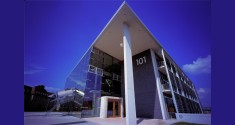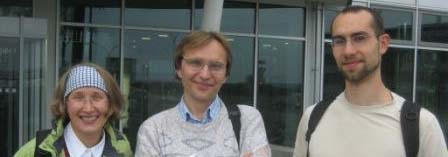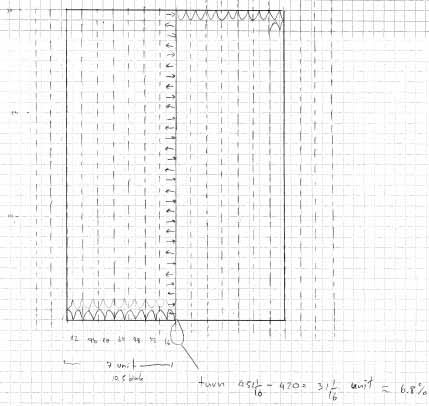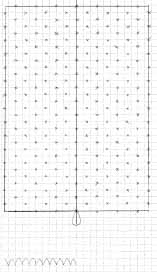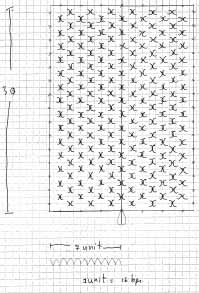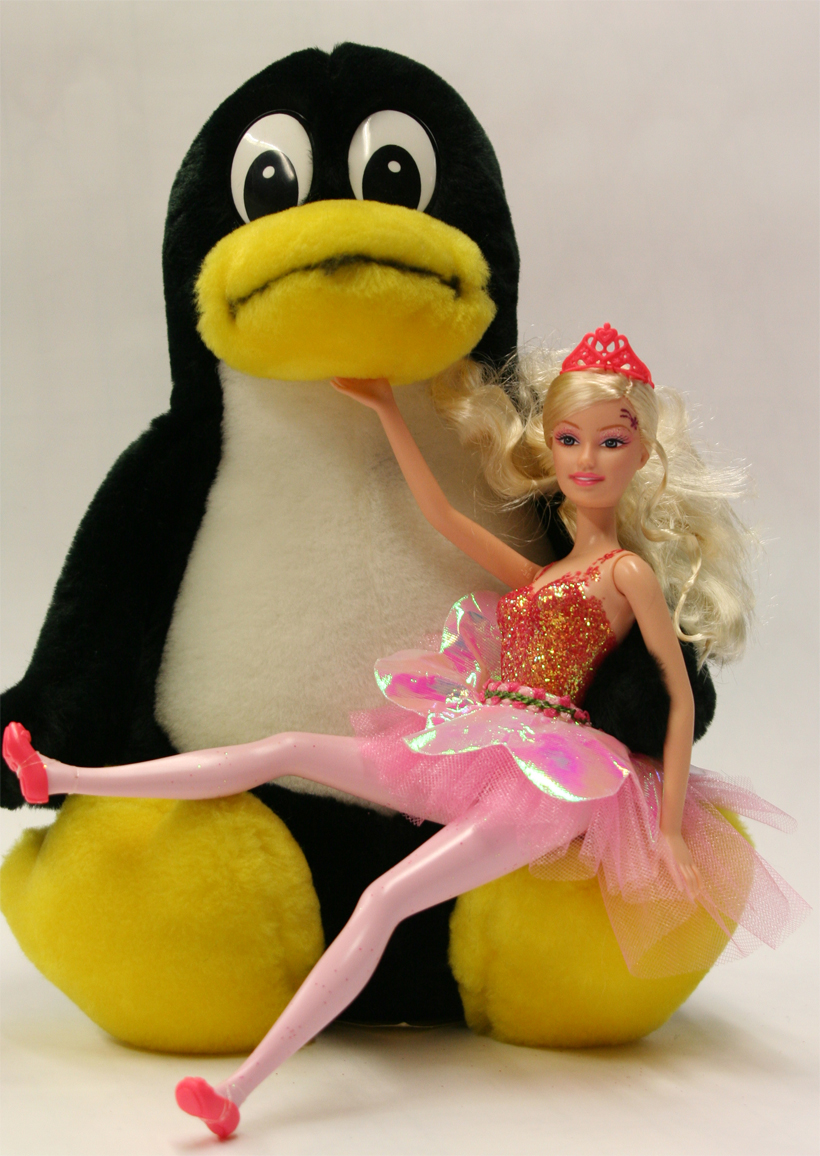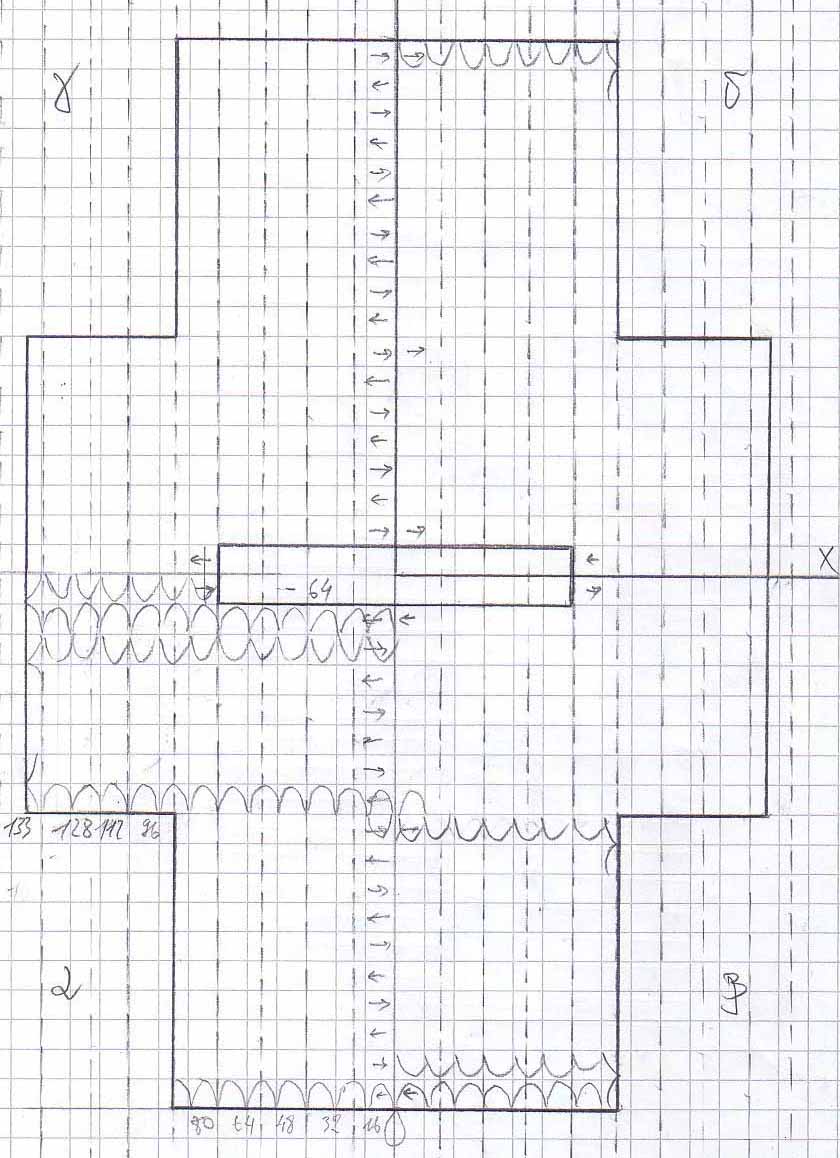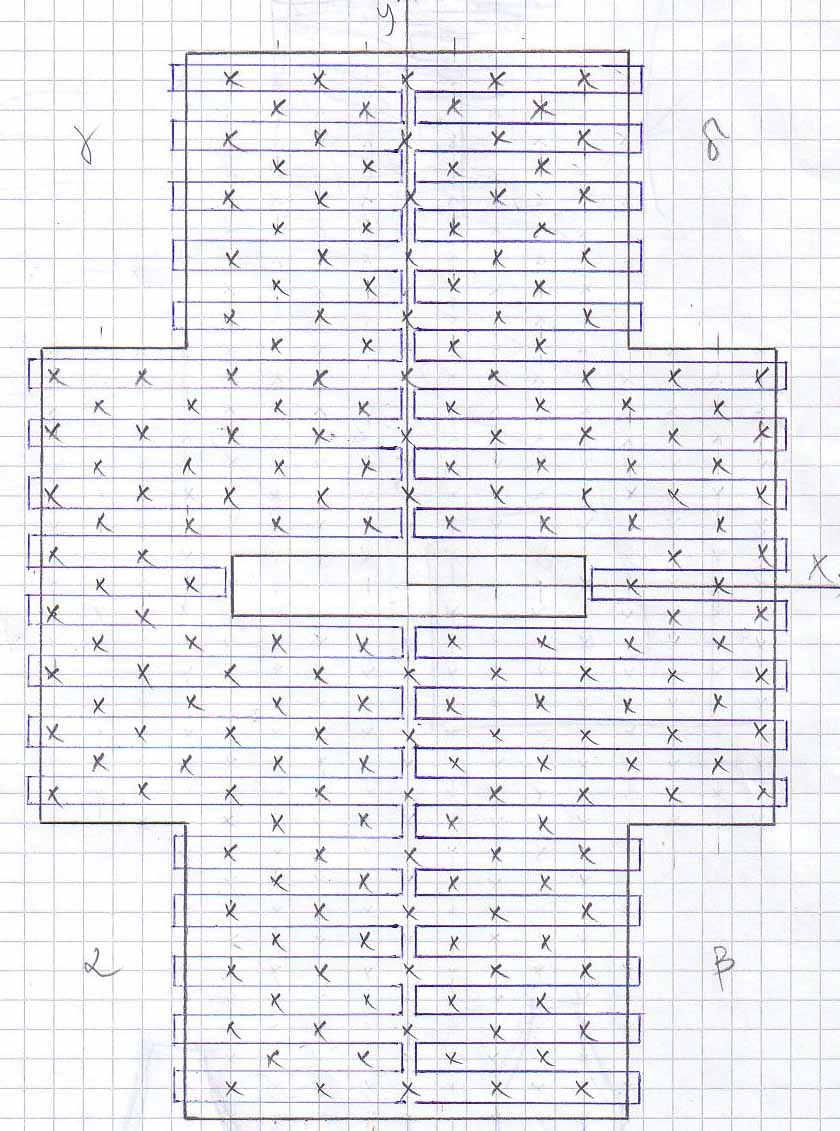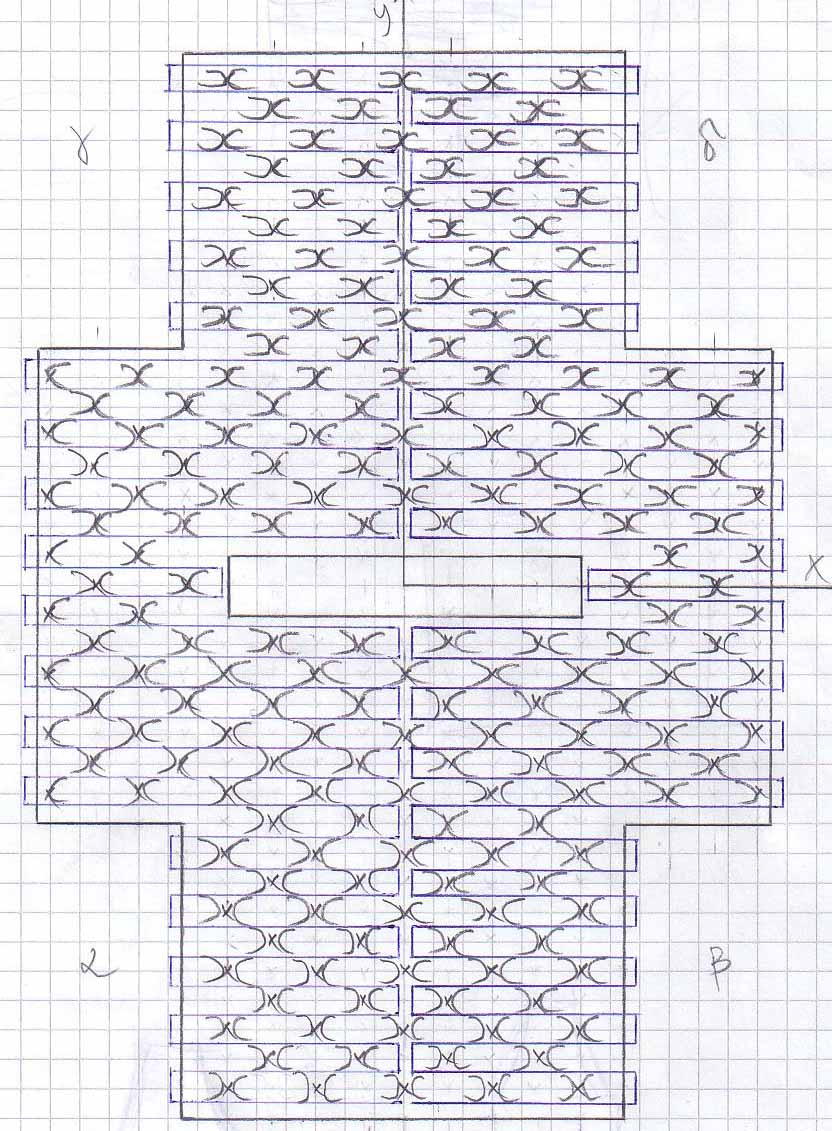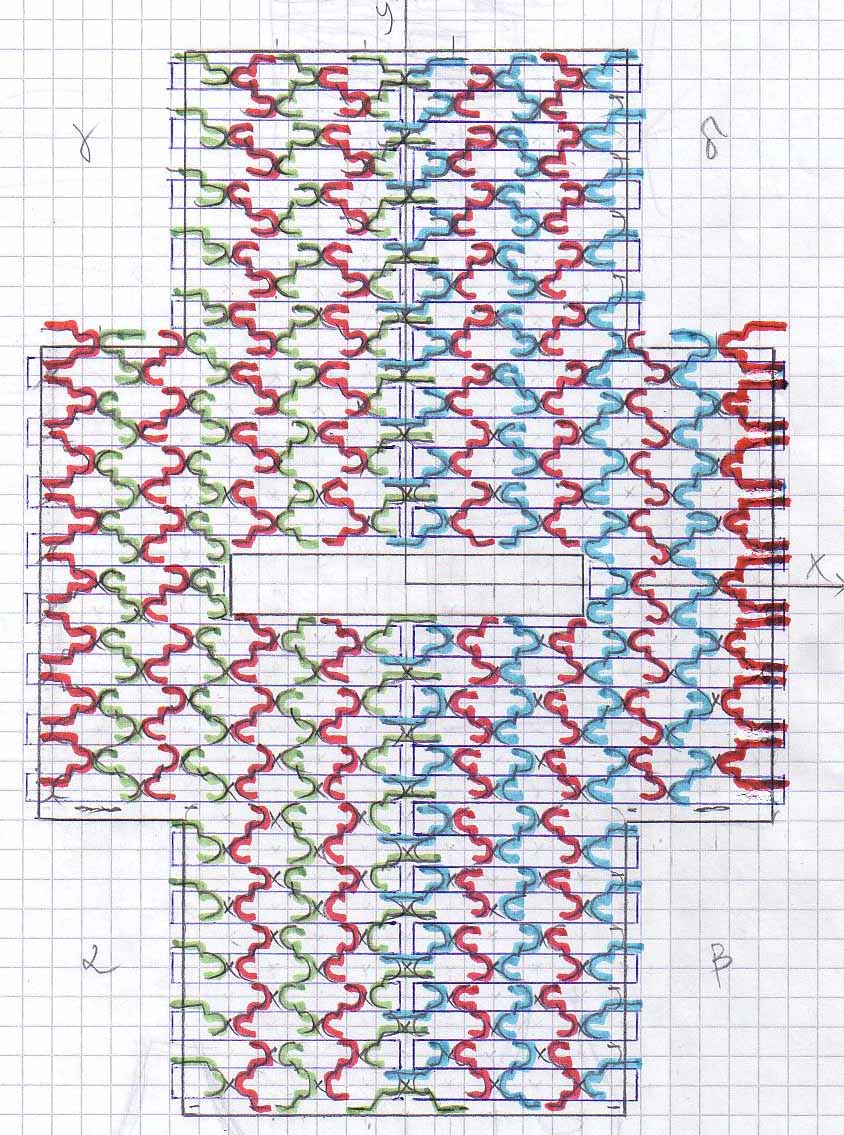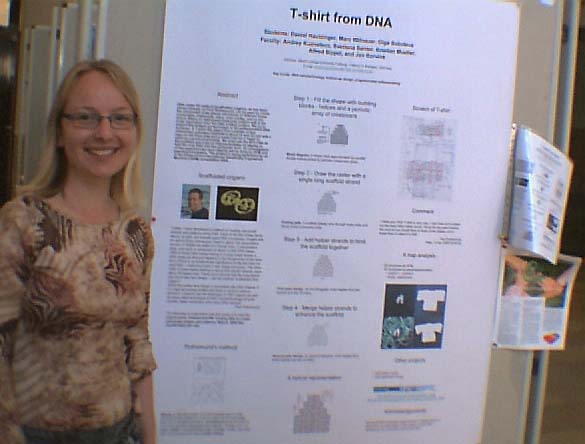Freiburg University 2006
From 2006.igem.org
Kouznetsov (Talk | contribs) |
(→<center>'''<font color='blue'>Welcome! We are Alife Mutants.</font color>'''</center>) |
||
| Line 5: | Line 5: | ||
<p> | <p> | ||
This term was invented by Martin Schneider on the Rule 110 Winter Workshop in 2004 [http://www.rule110.org/amhso/index.html]. We play without rules. We discover the rules that govern life, the universe and everything to exploit these rules and to create Artificial Life. Our short-time aim is the trip to Boston in November 2006 to take a prize in the iGEM. | This term was invented by Martin Schneider on the Rule 110 Winter Workshop in 2004 [http://www.rule110.org/amhso/index.html]. We play without rules. We discover the rules that govern life, the universe and everything to exploit these rules and to create Artificial Life. Our short-time aim is the trip to Boston in November 2006 to take a prize in the iGEM. | ||
| + | |||
| + | The long term goal now it to REALLY do it in 2007! | ||
[[image:uf101.jpg|left|thumb|260px|The hive #101]] | [[image:uf101.jpg|left|thumb|260px|The hive #101]] | ||
[[image:Freiburg Team 06.jpg|left|thumb|400px|The Freiburg Team (well, at least half of it...) from left to right: Irina Petrova, Andrei Kouznetsov, Daniel Hautzinger.]] | [[image:Freiburg Team 06.jpg|left|thumb|400px|The Freiburg Team (well, at least half of it...) from left to right: Irina Petrova, Andrei Kouznetsov, Daniel Hautzinger.]] | ||
Revision as of 06:56, 20 October 2006
|
The Team
| Students | iGEM instructors | Faculty/staff |
|---|---|---|
|
The project: DNA Folding
Basic IdeaAbstractThe idea is to design a strand of DNA such that it wraps into some meaningful shape. There are three different stages for this project: First, the DNA should fold into a two-dimensional rectangular sheet. Secondly, this sheet should wrap itself up into the shape of a short pipe. And last, these little pipes should hook themselves up to each other such that they form one single long pipe.
Scetches - PipesThe DNA sequence for the Pipes design can be found [http://omnibus.uni-freiburg.de/~kouznet/pipe/Tube-M13mp18-NEB-d.txt here], design picture is [http://omnibus.uni-freiburg.de/~kouznet/pipe/pip6.jpg here], the set of staples is [http://omnibus.uni-freiburg.de/~kouznet/pipe/StapleTube.txt here]. We’ll put the AFM pictures on the wiki as soon as febit delivers DNA. Enterprise: Barbie NanoatelierOnce the process of DNA folding into 3D structures is understood, shapes can be chosen arbitrarily. The idea of the Barbie Nanoatelier is that the DNA should wrap into a 3D T-Shirt, 3D Pants, etc. We need a library of molecular primitives that could be interchanged in the desirable way for a bottom-up design on the nanometer scale. Registry of DNA molecular parts and standardization is an actual question of bionanotechnology. We try to pump some aesthetic principles and rules (symmetry, periodic patterns, and recursion) into our creatures. We like it because it needs a huge of imagination and really very difficult. Nobody can build a bra!
Scetches - T-ShirtThe DNA sequence for the T-Shirt design can be found [http://omnibus.uni-freiburg.de/~kouznet/t-shirt/T-shirt_M13mp18_NEB_d.txt here], the picture is [http://omnibus.uni-freiburg.de/~kouznet/t-shirt/T-shirt.jpg here], and the staples are [http://omnibus.uni-freiburg.de/~kouznet/t-shirt/T-shirt_staples.txt here] there. Hey, venture capitalists, where are you? The price of all of 50 billion T-Shirts would be only 7200bases x €0.17/base = €1224. Don’t miss the chance. It could be a great business tomorrow! Individual projectsOther projects and prices could be found on individual Mutant's pages. In addition, you can find some hot information on ‘GEM Freiburg Fellow 2006’ page. The other toys will be unconventional computing, cryptography, nanoelectronics, nanooptics, drug delivery systems, smart nanomaterials, nanoswarm, and eventually an artificial life. Time is money! |
GEM Freiburg
Club
SB Preliminary
|
Original ideas
Hey Mutant, have a look!
The easy and serious way
These people do great thingsAlbert Libchaber [http://www.rockefeller.edu/research/abstract.php?id=93]
Carlos Bustamante's lab [http://alice.berkeley.edu/]
David Deamer [http://www.chemistry.ucsc.edu/deamer_d.html]
Eric Kool’s group [http://www.stanford.edu/group/kool/]
Erik Winfree [http://www.dna.caltech.edu/~winfree/]
Fred Menger’s group [http://www.chemistry.emory.edu/faculty/menger/index.html]
Jack Szostak’s lab [http://genetics.mgh.harvard.edu/szostakweb/]
Norman Packard’s Protolife [http://www.protolife.net/]
Pier Luigi Luisi’s group [http://www.plluisi.org/index.html]
Radhika Nagpal [http://www.eecs.harvard.edu/~rad/]
Steven Benner’s group [http://www.chem.ufl.edu/groups/benner/] LocalAn Analysis of Synthetic Biology Research in Europe and North America [http://www2.spi.pt/synbiology/] DNA synthesis: ATG-Biosynthetics [http://www.atg-biosynthetics.com/] febit [http://febit.de/europe/en/] The Spiegel about the iGEM competition on August 14, 2006 [http://www.spiegel.de/spiegel/0,1518,431399,00.html] New GEM on the simiki wiki page [http://ernie.imtek.uni-freiburg.de/simiki/GeneticallyEngineeredMachines] |
